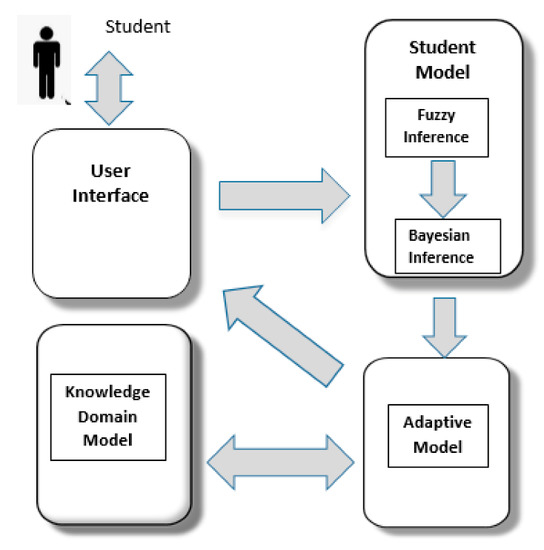Our Bioinformatics Tutor Statements
Our Bioinformatics Tutor Statements
Blog Article
Indicators on Bioinformatics Tutor You Should Know
Table of ContentsBioinformatics Tutor Fundamentals ExplainedFacts About Bioinformatics Tutor UncoveredHow Bioinformatics Tutor can Save You Time, Stress, and Money.Bioinformatics Tutor for DummiesSee This Report about Bioinformatics Tutor
Of the overall participants associated with the training, 80% were pupils from public college establishments, while the continuing to be 20% originated from private establishments. To get approved for a certification of participation, students were needed to go to at the very least 90% of the overall training hours. As a result of this requirement, an excellent 95% of the participants effectively gotten their certificates, having not just fulfilled the minimum participation standards however additionally finished all assigned tasks throughout the training.
During the height of the COVID-19 pandemic, particularly between June and August 2020, the project group was tasked with organizing specialized training in bioinformatics. This training was particularly aimed at students from the research group Core for Research study in Applied Computing at the Federal University of Pará (UFRA) The adaptation to remote understanding systems as a result of the pandemic developed a chance to discover brand-new mentor methodologies and electronic tools that enhanced both reach and effectiveness.
This training course was designed to give an easily accessible yet detailed overview of Artificial Intelligence methods, specifically as used in bioinformatics (Bioinformatics Tutor). This digital style allowed participation from trainees across Brazil, several of whom may not have had the opportunity to go to in-person sessions.
The smart Trick of Bioinformatics Tutor That Nobody is Discussing
Around 50% of the complete training hours were committed to practical activities where students built smart models and applications in a variety of clinical domain names, including genes, molecular biology, and ecological data evaluation. These systems enabled pupils to engage in real-time data manipulation, model training, and algorithm trial and error.
Sixty of them were associated with different higher education and learning organizations in the state of Pará, while the continuing to be twenty came from organizations located in five various other Brazilian states. By presenting Artificial Knowledge in a useful and relevant context, the initiative offered to link the space in between concept and real-world application, giving students with a strong structure for future research study or work in the field.
The training effort created component of a broader scholastic outreach effort called the Bioinformatics when traveling project. This task has, for many years, introduced lots of pupils to the world of bioinformatics and computational biology. The occasions held under this umbrella effort have actually occurred across several regions and years, as summed up in Table 1 (List of events, locations, years, and total numbers of students and trainers)
Among one of the most impressive outcomes of the Bioinformatics when traveling effort has actually been its contribution to the growth of decentralized research study groups. Numerous of these teams, initially combined by their participation in training events, have actually considering that gone on to produce independent scientific research study in partnership with neighborhood academic institutions. The training not only fostered clinical thinking within the context of bioinformatics but also stimulated joint relationships that extended past the training environment. These partnerships have actually brought about raised regional scientific performance and added meaningfully to the growth of the more Visit Your URL comprehensive bioinformatics community in Brazil.
The 5-Second Trick For Bioinformatics Tutor
The exact same group, omitting IH and RR, likewise acted as tutors for the practical training components. Financing for the job was supplied via the grant 88887.200562/ 2018-00 from CAPES.
The Federal College of Pará's Office of Study (PROPESP/UFPA) also offered financial backing, specifically for the production of the final manuscript. The authors proclaim no monetary or commercial problems of rate of interest that might have influenced the research study. Furthermore, all viewpoints and analyses revealed in this post are solely those of the authors and do not always reflect those of their respective establishments, the author, editors, her response or reviewers involved in the publication process.

About Bioinformatics Tutor
From a pedagogical perspective, the mentor approach used in the training was deliberately interactive. Courses were conducted in a fashion that encouraged trainee participation and conversation, surpassing memorizing memorization to discover exactly how ideas are created, applied in every day life, and evaluated in academic settings. The instructional philosophy focused on nurturing both solid and having a hard time pupils, supplying personalized support, and building confidence via continual mentorship and persistence.

Each group, containing about 36 individuals, was supported by three mentors-- the majority of whom were postdoctoral researchers with specialized know-how. These advisors not only helped design the group tasks yet likewise facilitated their implementation, making certain that each study concern was both properly difficult and appropriate. The objective was to give a biologically reasonable context that individuals might explore through flexible objectives and accessibility to curated datasets.
For additional understandings right into the methodology and end results of this project-based understanding method, viewers are routed to S1 Text, that includes detailed summaries of the pedagogical structure, assessment strategies, and task themes made use of in the training sessions.
Bioinformatics Tutor Can Be Fun For Everyone
Of the overall participants included in the training, 80% were students from public higher education institutions, while the remaining 20% came from exclusive institutions. To qualify for a certification of involvement, pupils were needed to participate in at the very least 90% of the total training hours. Notably, past the pupils who registered in the training sessions, seven seasoned teachers took part in providing the training courses, while three devoted study professors worked with the total training procedure. Approximately 50% of the total training hours were dedicated to functional tasks where pupils constructed smart versions and applications in a range of scientific domain names, including genes, molecular biology, and environmental data evaluation. The training not just fostered scientific thinking within the context of bioinformatics but also sparked joint relationships that extended past the training setting.
Report this page